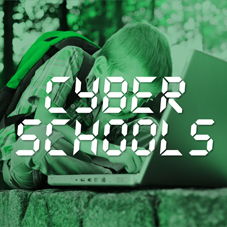Media

The Truth on Cyber School Performance
Here is a letter to the editor I submitted to the Pittsburgh Post-Gazette on Pennsylvania cyber school performance:
Mary Niederberger reports on a new, largely positive charter school study by Stanford University by taking an odd swipe at Pennsylvania cyber schools, blaming them for the state’s poor charter school performance.
Cyber charter schools have proven immensely popular with Pennsylvania families, who appreciate the flexibility and individualized learning these public schools offer. Some 35,000 students now attend the schools, which begs the question: If cyber schools perform so poorly, why are parents choosing them?
Cyber schools frequently function as “last-chance” institutions for students who have fallen behind or failed in traditional public schools. One-third of cyber school students are from school districts that failed to make Adequate Yearly Progress, and half of all cyber students are economically disadvantaged.
Given a few years at cyber school, many of these students improve in reading and math, and students do even better if they start at cyber school. At the Midland-based Pennsylvania Cyber Charter School, for example–the state’s largest–long-time students scored 17 percent higher in math and 14 percent higher in reading compared to newly enrolled students.
Certainly, Pennsylvania’s poorly performing charter or cyber charter schools should be forced to improve or be closed. But the same fate should befall persistently failing school districts that continue to flounder despite ever-increasing funding.
A healthy public school system that genuinely serves Pennsylvania students will have choices to serve different needs, while closing failing schools so our kids get a second chance before it’s too late. Let’s not forget that many cyber and other charter schools serve as lifelines to desperate families.
For more on cyber school funding, performance and popularity, please see our latest Policy Memo.